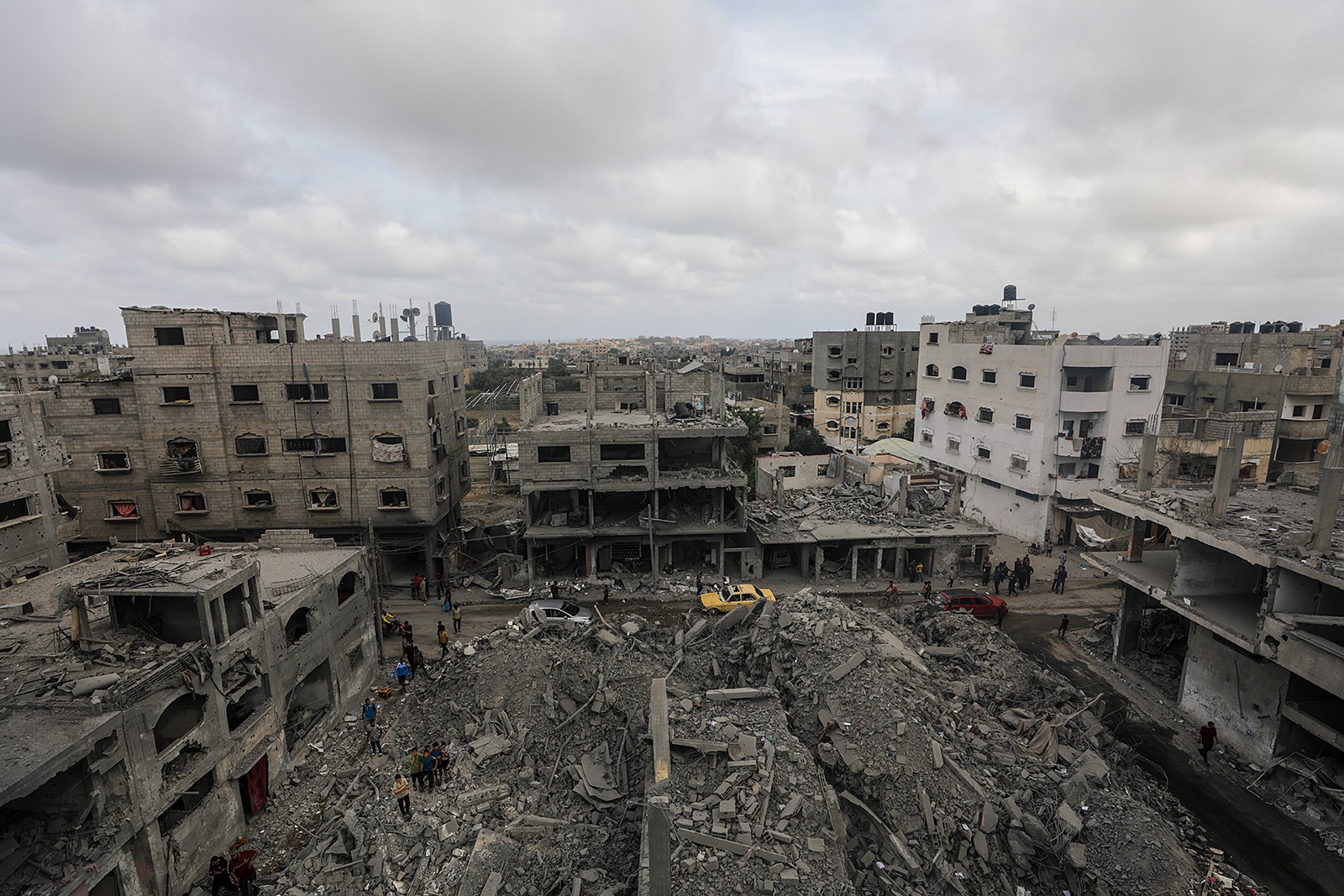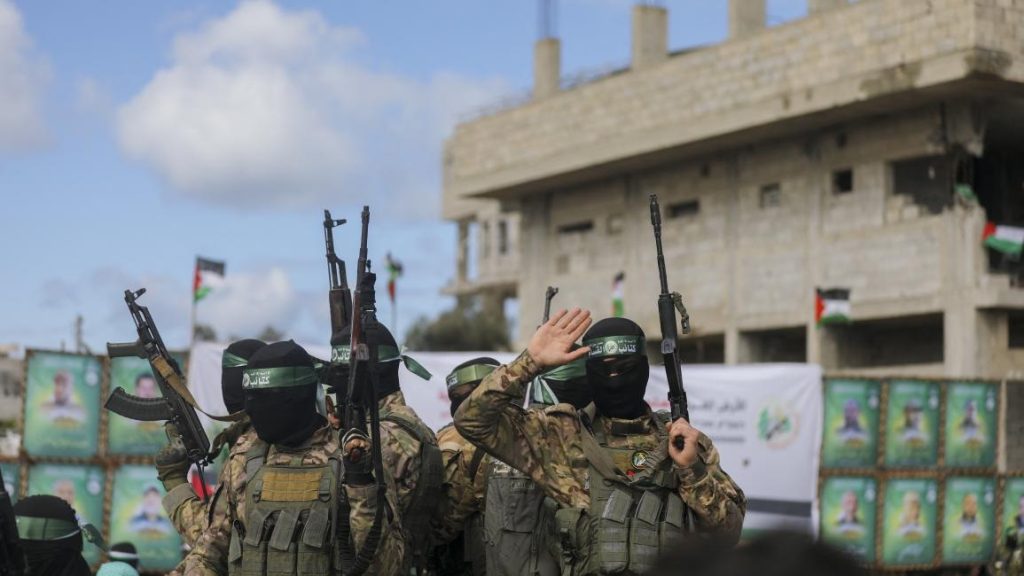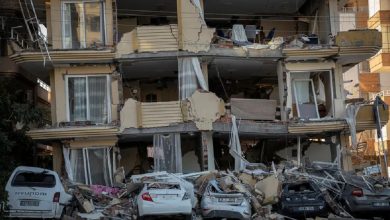56% of Israelis Want Immediate End to the War; Yair Lapid Says Netanyahu Cannot Defeat Hamas
A prominent Israeli commentator critiques Netanyahu’s handling of the Gaza war, as public opinion shifts and military actions raise serious concerns over Israel’s future in the region.

Watan-What exactly are we doing in Gaza? This is the question raised by a prominent Israeli commentator, expressing the sentiment of many in Israel who felt “disappointed” by Netanyahu’s recorded speech from Saturday night, which offered no good news and recycled slogans about victory and surrender.
In an article published today (Monday) in Yedioth Ahronoth, political commentator Nahum Barnea questions the future of the brutal war on Gaza, stating that military leaders like Zamir and his colleagues only want military pressure to push Hamas into a “deal,” while Netanyahu wants a long, wide war that ends with the “occupation of the entire Gaza Strip.”
Barnea argues that Netanyahu’s goal is to exert pressure on Hamas to please the right-wing public or to make it a never-ending war… driven by an unattainable desire for “victory.”
In his article, which reads like an indictment against Netanyahu, Barnea emphasizes that Netanyahu has abandoned the issue of Israeli hostages, as they do not fit into his agenda.
It is also worth noting that Hebrew media reported yesterday that the Israeli government is exploring another way to pressure Hamas by re-arresting dozens of prisoners released in previous deals. The violent escalation and random bombing since March 18 have not brought Israel any closer to achieving its declared goals.

The Security Belt
Yedioth Ahronoth today highlights the creation of a new security reality in Gaza, with the establishment of a “security belt” around the strip, where Israel has built 15 military posts to prevent Hamas attacks on the western Negev. However, the newspaper warns that the recent killing of one soldier and injury of five others inside this security belt raises doubts about its effectiveness.
Military correspondent Yoav Zitun states that the security belt does not guarantee the safety of soldiers and reminds of the Israeli army’s experience in southern Lebanon after the First Lebanon War. Zitun, Barnea, and other Israeli observers hint at concerns that Israel may pay a heavy price for a ground invasion, as Hamas has so far carried out only limited operations—not because it cannot do more, but because it is waiting for the right moment to engage.
Israeli sources warn that a large-scale ground invasion will result in many civilian casualties, including some of the hostages, and could drag Israel into a war of attrition. The psychological burden on soldiers and Israelis is immense, as illustrated in a Yedioth Ahronoth cartoon showing Netanyahu under the title “War of Resurrection,” holding a fifth call-up order and speaking to a soldier resting and sleeping.
In its editorial, Haaretz warns about the consequences of a broad invasion, suggesting that the hostages may meet the same fate as Israeli pilot Ron Arad, who went missing in Lebanon almost four decades ago. The mother of the captive soldier, Matan Tsangavker, is quoted by Haaretz saying that the hostages will meet the same fate unless Israelis rise up and force Netanyahu to stop the war.
Netanyahu Unable to Defeat Hamas
Against this backdrop, a new survey by Israeli Public Radio published today (Monday) shows that 56% of Israelis want the war to end immediately and call for an “all-for-all” exchange of prisoners.
Meanwhile, opposition leader Yair Lapid stated on the same radio station that Netanyahu is unable to defeat Hamas. He noted that Netanyahu has had all the support for a year and a half but still hasn’t succeeded, as he refuses to define what happens after the war and rejects building an alternative to Hamas. Lapid also criticized Netanyahu for continuing to allow tens of thousands of ultra-Orthodox Jews to evade military service.
Despite the desires of Israelis and numerous petitions calling for the end of the war, Netanyahu seems determined to press on, indifferent to the pain of Israelis, the fate of the hostages, and offering no clear answer about how to reconcile the destruction of Hamas with the safe return of the hostages. What, then, will change Netanyahu’s position? He seems to be seeking a long war in hopes of achieving a victory over Hamas that might redeem him in the eyes of Israelis who accuse him of strategic failure on October 7, and who want him held accountable through an official inquiry or in the next general elections. He also appears to be using the war to distract from corruption scandals and signs of internal authoritarianism.
Netanyahu may be forced to stop if a large number of Israeli soldiers are killed in a single incident, causing a significant psychological impact and leading many Israelis to take to the streets. The killing of several hostages as a result of random bombings and a ground invasion may also force a change. Additionally, the U.S. administration now holds the key to this crisis. So far, the U.S. has continued to give Netanyahu the green light for military pressure, but President Trump’s priorities may differ. He may be swayed by growing internal Israeli protests or a unified, serious Arab stance protecting Palestinian civilians from the massacre and deprivation of basic needs.

The Ambulance Massacre
In the context of Palestinian bloodshed and Israeli lies, a number of Israeli observers have also joined those rejecting the Israeli army’s findings on the massacre of medics.
In an official statement yesterday, the army claimed that no execution of medics took place, but soldiers made mistakes and lied. Among the critics is prominent political commentator Raveev Druker, who wrote in Haaretz that what happened is not an exceptional incident, pointing out that the war is full of operations that kill dozens of innocent civilians to assassinate one leader.
Druker believes such massacres stem from a desire for revenge, the belief that those in the house are “mad,” and the generalization that all are “terrorists.” This has led to many operations that cannot be justified… It’s unethical, inhuman, and tarnishes us all.
Political commentator Nir Hasson takes an even clearer and less diplomatic stance, stating that this is “not unusual” and concludes by saying that the story of the medics shows what the army is hiding: many reports about “terrorists” are lies.
If the Arab official system wants to help stop the massacre, it can use political and media pressure within Israel to expose Netanyahu’s intentions and plans. Netanyahu has blocked any deal and continues the war despite killing dozens of innocent people daily. This may push President Trump to say “enough,” especially since he has previously stated he wants the war to end soon.






